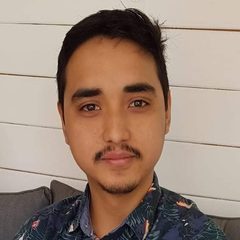
Edo Rivai
Some wizkids from school invited me to join them competing in a game building competition. After just a few months worth of evenings, we had built a complete game. I was dazzled by what us ordinary youngsters could accomplish with nothing but our home computers and enthusiasm. It lit a spark in me that would later develop into a software engineering career. The cherry on top? We won that competition.
This took place well over a decade ago, but the passion persevered through the years. I don't care nearly as much about code as many of my peers, however. The end results ‒ the working products ‒ keep my curiosity alive and motivation fresh.
Tech
- TypeScript
- React
- Node.js
- GraphQL
- AWS
- Kubernetes
Highlights
Economics and Business Economics
Having set out to become a software engineer, I naturally pursued Computer Science. I soon discovered the curriculum centres less around Computer than I had hoped, having a greater emphasis on Science instead. This academic approach is not a great fit for me. I reevaluated and decided to diversify, switching to and ultimately earning my degree in Economics and Business Economics.
PaperFlies
Pimm and I sketched out how this platform was to operate with pen on paper. Before long, the system was operational and responsible for getting real travellers their tickets on time. I grew with the company and blossomed from a freelancer to the Chief Technology Officer. Many different technologies were trialled and implemented over time, but we always had the corporate objective as our northstar.
Spot AI
I was the first engineer to join the SpotAI team, and it was in turn my first venture capital-backed project. This environment was uncharted waters for me: from moving amongst Silicon Valley industry veterans to dealing with hockeystick growth. When a project skyrockets, every bit of the tech stack constantly expands beyond its limits and requires adaptation. The challenges are neverending.